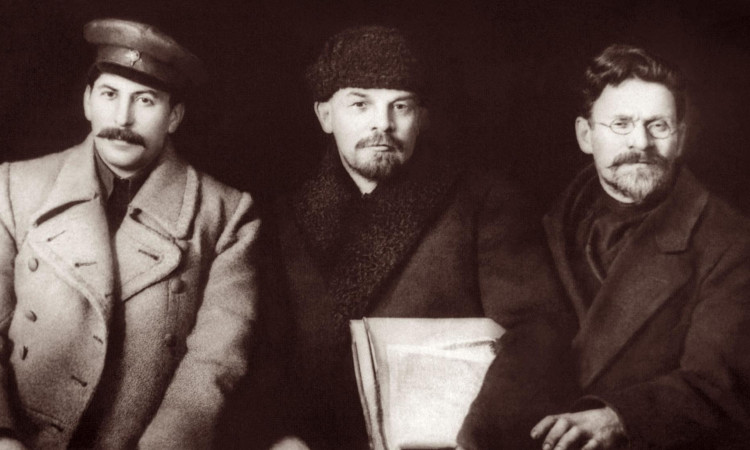A system that is free from the incurable diseases of capitalism has great advantages over capitalism. Crises, unemployment, waste, destitution among the masses – such are the incurable diseases of capitalism. Our system does not suffer from these diseases because power is in our hands, in the hands of the working class; because we are conducting a planned economy, systematically accumulating resources and properly distributing them among the different branches of the national economy.
We are free from the incurable diseases of capitalism. That is what distinguishes us from capitalism; that is what constitutes our decisive superiority over capitalism.
Notice the way in which the capitalists are trying to escape from the economic crisis. They are reducing the workers’ wages as much as possible. They are reducing the prices of raw materials as much as possible. But they do not want to reduce the prices of food and industrial commodities for mass consumption to any important extent.
This means that they want to escape from the crisis at the expense of the principal consumers, at the expense of the workers and peasants, at the expense of the working people. The capitalists are cutting the ground from under their own feet. And instead of overcoming the crisis they are aggravating it; new conditions are accumulating which lead to a new, even more severe crisis.
Our superiority lies in the fact that we have no crises of overproduction, we have not and never will have millions of unemployed, we have no anarchy in production, for we are conducting a planned economy.
But that is not all. We are a land of the most concentrated industry. This means that we can build our industry on the basis of the best technique and thereby secure an unprecedented productivity of labour, an unprecedented rate of accumulation.
Our weakness in the past was that this industry was based upon scattered and small peasant farming. That was so in the past; it is no longer so now. Soon, perhaps within a year, we shall become the country of the largest-scale agriculture in the world. This year, the state farms and collective farms – and these are forms of large-scale farming – have already supplied half of all our marketable grain.
And that means that our system, the Soviet system, affords us opportunities of rapid progress of which not a single bourgeois country can dream.
What else is needed in order to advance with giant strides?
A party sufficiently solid and united to direct the efforts of all the best members of the working class to one point, and sufficiently experienced to be unafraid of difficulties and to pursue systematically a correct, revolutionary, Bolshevik policy. Have we such a party? Yes, we have. Is its policy correct? Yes, it is, for it is yielding important successes.
This is now admitted not only by the friends but also by the enemies of the working class. See how all the well-known ‘honourable’ gentlemen, Fish in America, Churchill in Britain, Poincaré in France, fume and rave against our party. Why do they fume and rave? Because the policy of our party is correct, because it is yielding success after success …
We are fifty or a hundred years behind the advanced countries. We must make good this distance in ten years. Either we do it, or we shall go under … [our emphasis]
But we have yet other, more serious and more important, obligations. They are our obligations to the world proletariat. They coincide with our obligations to the workers and peasants of the USSR, but we place them higher.
The working class of the USSR is part of the world working class. We achieved victory not solely through the efforts of the working class of the USSR, but also thanks to the support of the working class of the world. Without this support we would have been torn to pieces long ago.
It is said that our country is the shock brigade of the proletariat of all countries. That is well said. But this imposes very serious obligations upon us. Why does the international proletariat support us? How did we merit this support?
By the fact that we were the first to hurl ourselves into the battle against capitalism, we were the first to establish working-class state power, we were the first to begin building socialism. By the fact that we were engaged on a cause which, if successful, will transform the whole world and free the entire working class.
But what is needed for success? The elimination of our backwardness, the development of a high Bolshevik tempo of construction. We must march forward in such a way that the working class of the whole world, looking at us, may say:
‘There you have my advanced detachment, my shock brigade, my working-class state power, my fatherland; they are engaged on their cause, our cause, and they are working well; let us support them against the capitalists and promote the cause of the world revolution.’
Must we not justify the hopes of the world’s working class, must we not fulfil our obligations to them? Yes, we must if we do not want to utterly disgrace ourselves.
Such are our obligations, internal and international. As you see, they dictate to us a Bolshevik tempo of development.
______________________________















